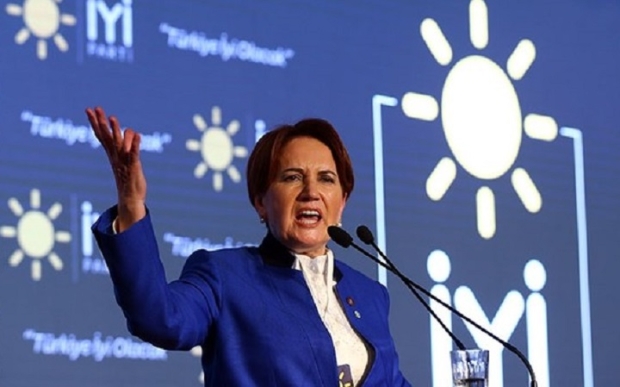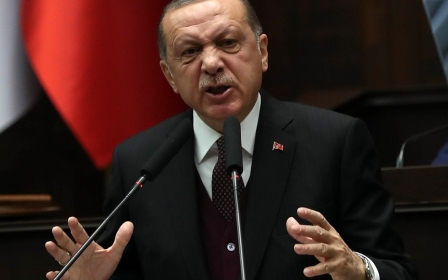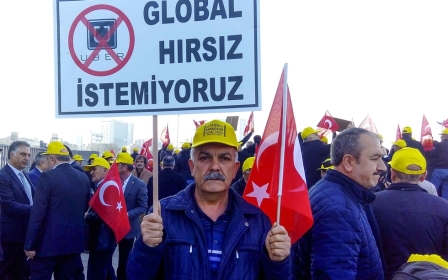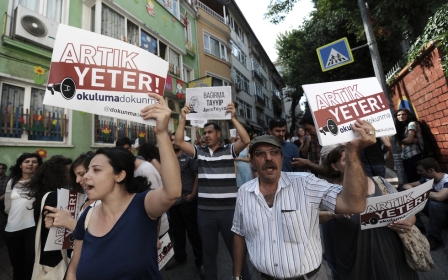Erdogan calls snap Turkish polls to 'end uncertainty'
Recep Tayyip Erdogan has announced Turkish presidential and parliamentary elections on 24 June, citing an "urgent" need to switch to an executive presidential system to cure the "diseases" of the old political system.
The Turkish president said he took the decision after discussions with his political ally Devlet Bahceli, the leader of the Nationalist Movement Party (MHP).
The diseases of the old system confront us at every step we take
- Recep Tayyip Erdogan
Both presidential and parliamentary elections will be held on the same day, and will change Turkey's political system from parliamentary rule to placing sweeping powers in the hands of the president.
Erdogan cited economic instability, the recent operation in northern Syria and a need "to overcome uncertainty" to bring forward polls from their planned November 2019 date.
"Even though the president and government are working in unison, the diseases of the old system confront us at every step we take," he said in a speech broadcast live on television.
"Developments in Syria and elsewhere have made it urgent to switch to the new executive system in order to take steps for our country's future in a stronger way.
"As result of consultations with Mr Bahceli, we decided to hold elections on June 24, 2018, a Sunday," the president said.
"We discussed Mr Bahceli's call with our relevant authorities. We came to the agreement that we should approach this early election positively."
Super-presidency awaits
The June election will usher in Erdogan's new super-presidency system, which was approved by referendum last year, but by a narrower majority than the AKP and the sitting president had predicted.
The last parliamentary elections in Turkey took place in November 2015, only a few months after the June 2015 elections saw the ruling Justice and Development party (AKP) losing its parliamentary majority.
It regained its majority in the November elections, but the period in between saw violence re-erupting in the Kurdish-majority southeast of the country which some election observers said risked the validity of the vote.
The main opposition Republican Peoples Party, or CHP, said it was ready for the elections, but called for the lifting of the state of emergency, which was implemented following the July 2016 coup attempt and renewed in parliament on Wednesday.
"The state of emergency needs to be lifted immediately, there cannot be an election under emergency rule. The country needs to brought out of the emergency rule regime starting today," party spokesman Bulent Tezcan said.
There was also speculation over the participation of the newly formed Iyi Party, which is seen as a potential electoral threat to both the AKP and CHP.
Under electoral law, Iyi needs to have held a party congress within six months of an election in order to be allowed to run.
However, in a statement on Wednesday the party's general secretary Aytun Ciray said the party had fulfilled all the obligations needed to take part in the elections.
Iyi leader Meral Aksener also announced on Wednesday she would be acquiring the 100,000 signatures needed for her to run as a presidential candidate against Erdogan.
"As of this moment we start the election work," she said.
"Everybody get to their feet. The Iyi Party will enter the election."
Middle East Eye propose une couverture et une analyse indépendantes et incomparables du Moyen-Orient, de l’Afrique du Nord et d’autres régions du monde. Pour en savoir plus sur la reprise de ce contenu et les frais qui s’appliquent, veuillez remplir ce formulaire [en anglais]. Pour en savoir plus sur MEE, cliquez ici [en anglais].





